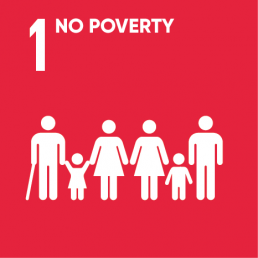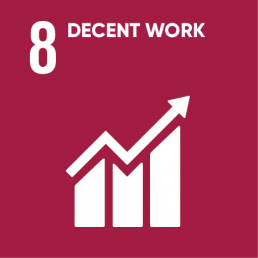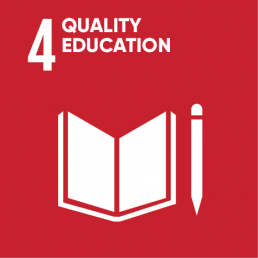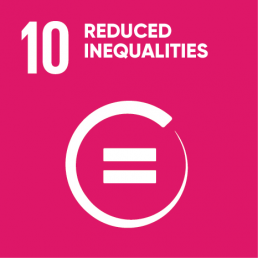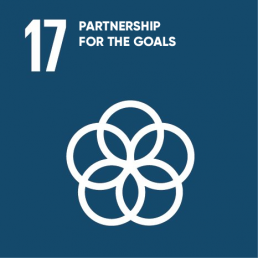Skill-UP Climb-Up
THE NEED
A June 2018 report by the World Poverty Clock shows Nigeria as having the largest extreme poverty population globally, overtaking India to this position. With 86.9 million Nigerians now living in extreme poverty i.e below the globally accepted standard of 1.25 dollars per day, this represents nearly 50% of our estimated 180 million population. Out of the 15 world countries with the highest poverty rate, 13 of them are African countries. This already puts the SDG goal of ending poverty in all its forms at risk.
Realistically, the major solution to tackling the staggering poverty rate in Nigeria and Africa as a whole lies in human capacity development.
Besides the governance and political processes that undermine poverty alleviation efforts over past decades, a key factor to be considered in the discussion of income inequality and unemployment rates is the dearth of skilled and productive labour that can be exchanged for value.
Beyond highlighting these needs, we need to articulate what needs to be done.
Education is the first step in the right direction. Statistics show that two in five African adults are illiterate. While the number of schools may be increasing in Nigeria, access and attendance rate is not evenly spread in rural and impoverished communities. In areas plagued by instability or insurgency, general attendance is down due to violence and gender inequality.
The case for education and improving literacy outcomes goes beyond formal education to facilitating learning, acquisition of vocational skills and skills that will harness the enormous benefits of our agricultural resources. It is paramount that the skilled population percentage increases. Skill is the lifeline out of poverty.
The only way we can compete at the global stage is if we concertedly develop specialized and technical skills at professional levels through aggressive skill acquisition orientation campaigns, workshops and advocacy drives for increased transparent budgetary allocations to the education sector. Acquiring entrepreneurship, business and tech skills empower individuals to make progress in their career paths.
When industrialization, trade and investment opportunities arise and there is a scarcity of skilled local manpower, we would be inevitably be replaced by expatriates. It’s skilled people who are more likely to recognise and take advantage of opportunities.
Taking this a step further, the project is also designed to provide network opportunities to support the career growth and viability of skill acquisition beneficiaries and equip them to climb up and contribute at global levels.
Human resource is the key to developing Africa’s potential and driving out poverty and we must determinedly harness the far-reaching possibilities in order to end poverty and ensure sustainable economic development.
ABOUT THIS PROGRAM
Skill up-climb up is a 10-year human capacity development project that is primarily targeted at addressing the challenges of skills deficit, poverty, unemployment rates and unpreparedness of both African businesses and the teeming population of young people for the future of work and globalization. This project is designed to impact 50,000 young people.

THE ACTIONPLAN
To deliver on the goal of this project in empowering young people and addressing the need statement, the action plan is comprised of a two-pronged approach- reflective of the two segments of the project; Skill-Up and Climb-Up
SKILL-UP
Our Skill-Up initiatives are capacity building projects designed to encourage & facilitate knowledge sharing and learning across 5 interest tracks online and offline.
Skill up learning Tracks are ;
Digital track: Comprised of skills such as Basic computing education, Digital and Social media Marketing, Motion Graphic design, Graphic design, Website design, Film editing, Animation & Design Education, APP development, blogging & writing, coding, AI, Big Data, etc.
Vocational track: Skillset under this category includes plumbing, carpentry, welding, masonry, hairdressing, local manufacturing etc
Entrepreneurship track: Skill set under this category includes Finance, Sales & Marketing, Strategy, Innovation, Tax and audit, Operational management, Human resource, Business Administration etc.
Agri-business track: Livestock farming, Crop farming, Fish farming, Poultry farming etc.
Employability track: CV writing, Career planning, Interview ethics, Project management, Teamwork, Team leadership etc.
To build capacity across these different tracks working with our partners we will do the following ;
- Execute of over 500 short and long term capacity building workshops across Nigeria that will benefit over 100,000 young people.
- Peer to peer knowledge transfer: We will enable subject matter experts to transfer their knowledge through providing them with training, seminars and platforms to share their knowledge, empower them to produce useful online learning resources accessible on online learning portals and social media feeds that will reach and benefit over 5 million people.
- Work with communities and governments to set up 6 mini Skill-Up, Climb-Up hubs across the 36 states of the federation were learning across our 5 interest tracks can take place continuously for over 50,000 learners
- Create new learning experiences – Learning Trips, excursions, VR and AR etc.
CLIMB-UP
Our Climb-up initiatives are projects targeted at creating a platform online or offline that ;
To connect skilled people to life-changing opportunities we will deliver on the following plans;
- Job and career fairs, skills festivals, competitions and hackathons.
- Help 50,000 founders and business owners with fundraising or connect them to investment, grants and growth opportunities.
- Host or connect skilled people to events, that improves their network and capacity
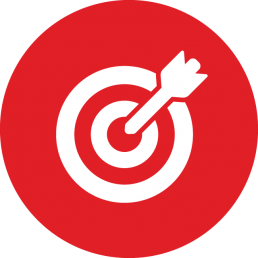
10 YEAR IMPACT TARGET
POVERTY – Raise over 100,000 people out of poverty.
UNEMPLOYMENT – Get over 1 million people gainfully employed.
SKILLED WORKFORCE – Ensure 1 million Nigerians are equipped for the future of work.
Our way of measuring the impact of all #SUCU actions undertaken over the 10-year timeframe of the project is primarily through;
- A strong database that effectively captures the actions taken by our Grassroots development champions, subject matter experts and partners i.e Individuals, Organizations and Government.
- Detailed M/E reports of the actions taken and the impact they are having.
- Curating impact stories from our beneficiaries – learners.
